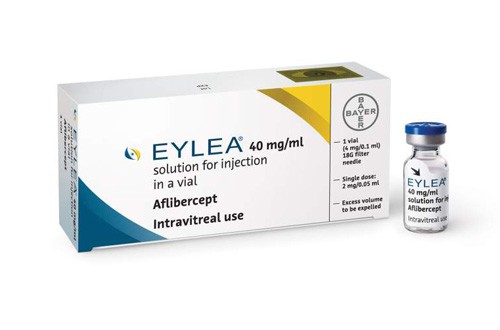
Regeneron has abandoned a combination therapy for age-related macular degeneration after disappointing phase II data, handing an advantage to would-be rival Novartis.
Eylea (aflibercept) – which is partnered with Bayer – is the market leader in AMD with sales of $2.73bn in the first nine months of the year, but is facing the threat of competition from Novartis’ late-stage candidate brolucizumab (RTH258), which achieved impressive results in phase III trials and needs to be dosed less frequently than Regeneron’s drug.
Regeneron and Bayer had hoped that pairing Eylea with angiopoietin2 antibody candidate nesvacumab would give them a new line of defence for the franchise, but have now confirmed they will not advance the duo into phase III in either AMD or diabetic macular oedema.
The studies assessed two different doses of nesvacumab in combination with aflibercept, both administered as a single co-formulated intravitreal injection, as well as aflibercept monotherapy. Adding nesvacumab to Eylea did not however add enough additional benefit to warrant further development.
“We knew from the start that it would be difficult to improve on the already high bar set by Eylea,” said George Yancopoulos, president and chief scientific officer of Regeneron. He added that the company is expecting to report results from a phase III study evaluating Eylea in diabetic retinopathy, “which represents a growing patient population with significant need.”
Meanwhile, Novartis is making much of the fact that brolucizumab only needs to be dosed every 12 weeks, rather than every eight weeks for Eylea. The new candidate matched Eylea for efficacy in a phase III trial reported earlier this month, with Novartis claiming superiority for its drug on secondary measures such as reductions in retinal thickness. It could reach the market in 2019 with analysts suggesting sales of $2bn are possible at peak.
Novartis does have to be wary of cannibalising sales of its established AMD therapy Lucentis (ranibizumab), which is playing second fiddle to Eylea but is still a blockbuster – albeit one headed for patent expiry in 2020.
This is the second pipeline disappointment for Regeneron in recent months after it abandoned respiratory syncytial virus (RSV) candidate suptavumab, which failed to hit the mark in a phase III trial testing its ability to prevent RSV infections in infants.




